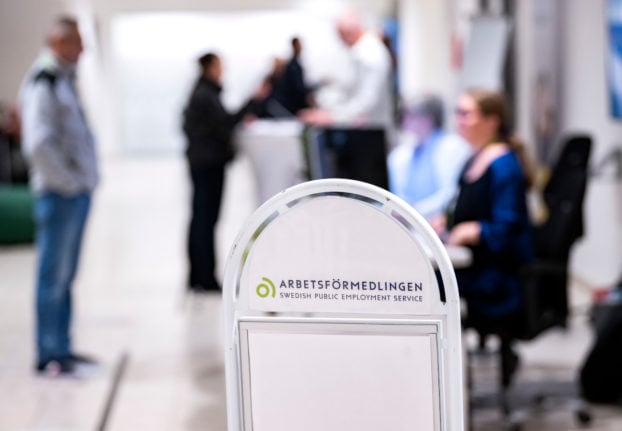“We’ve seen an increasing number of bankruptcies,” Swedish news agency TT quoted Svantesson as telling a press conference.
“The difference compared to the pandemic is that it’s mainly small businesses with few employees that are being hit, but we’re going to see even more bankruptcies in 2024 too and more people will become unemployed.”
Sweden’s inflation according to the CPIF metric, with mortgage rates removed from the equation, fell to 2.3 percent in December according to the latest figures – slightly less than expected, but still bringing it close to the Swedish central bank’s two percent target.
“We’re getting closer to the target, but there are still great risks ahead,” predicted Svantesson.
Just over 349,000 people, or 6.7 percent of the workforce aged 16-65, were registered as unemployed with the Public Employment Service at the end of December, according to new figures released on Tuesday.
That’s an increase of more than 13,000 people compared to the same period a year ago.
“At the end of the year, unemployment and the number of notices increased and there were fewer available jobs,” writes the Public Employment Service.
EXPLAINED:
The hardest hit sectors by the downturn are workplaces that are affected by household consumption, such as shops, hotels and restaurants. The construction industry is also one of the industries worst affected by falling demand, leading to fewer jobs.
The majority of jobless people (194,000) in December were born outside of Sweden, although that figure remained constant compared to last year. Seen in percentages, relative unemployment among foreign-born people fell from 16.6 percent in December 2022 to 15.6 percent.



 Please whitelist us to continue reading.
Please whitelist us to continue reading.
Member comments